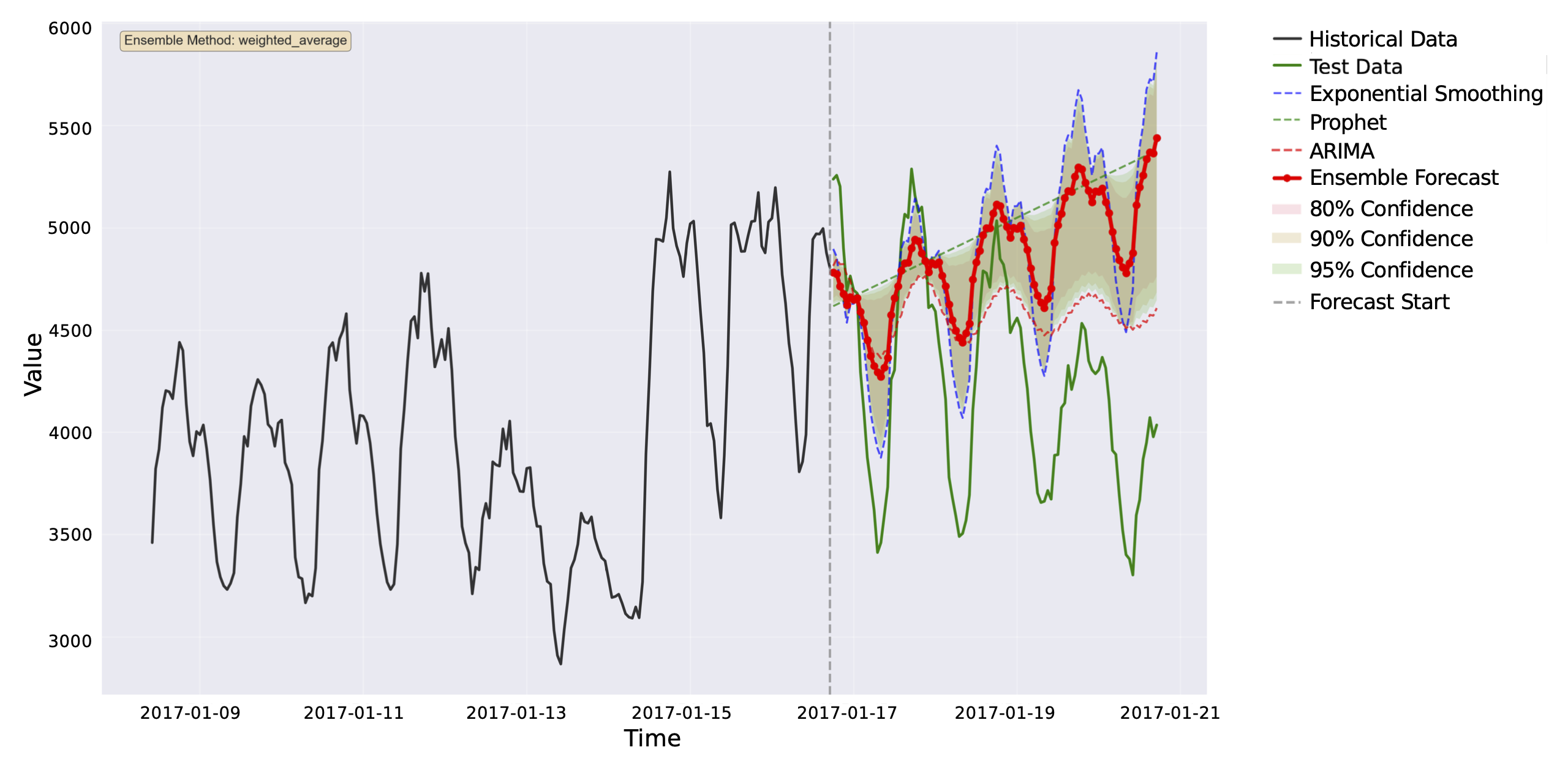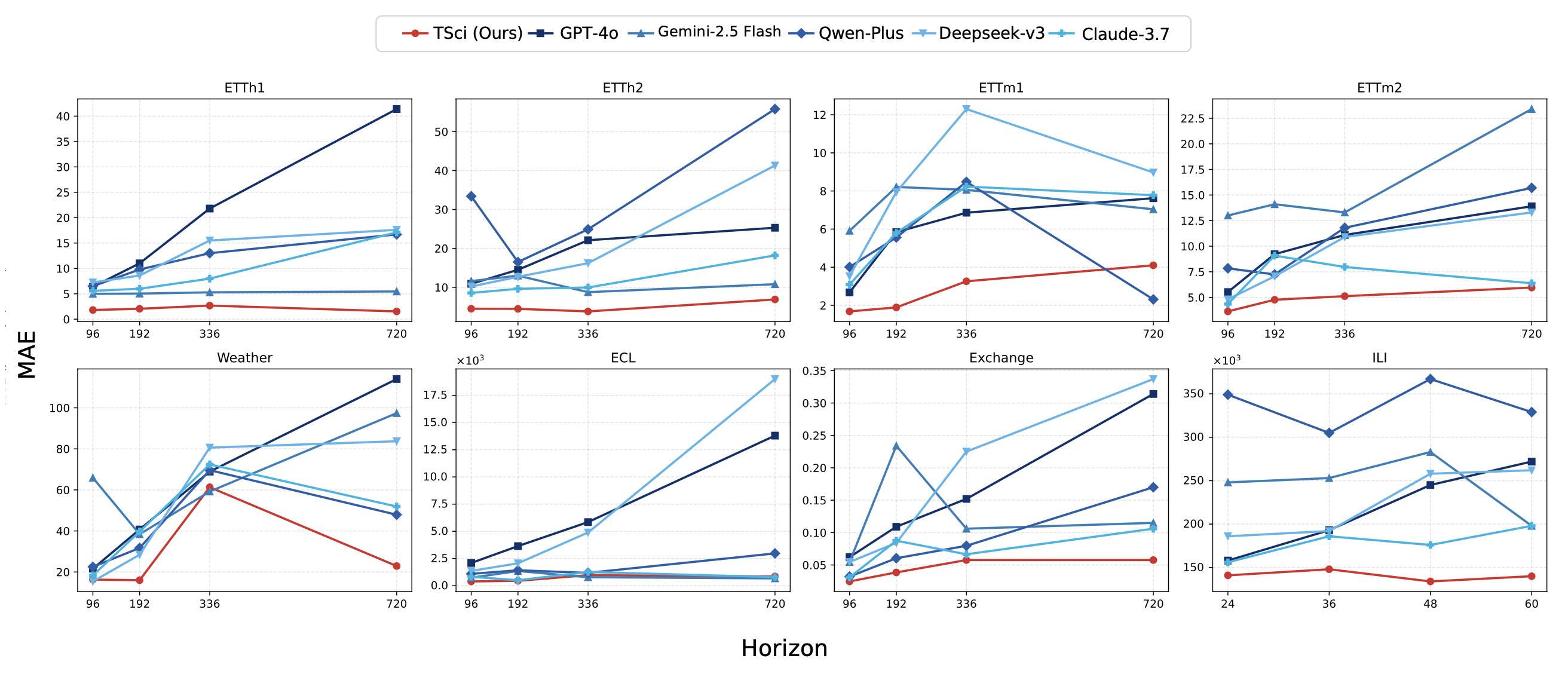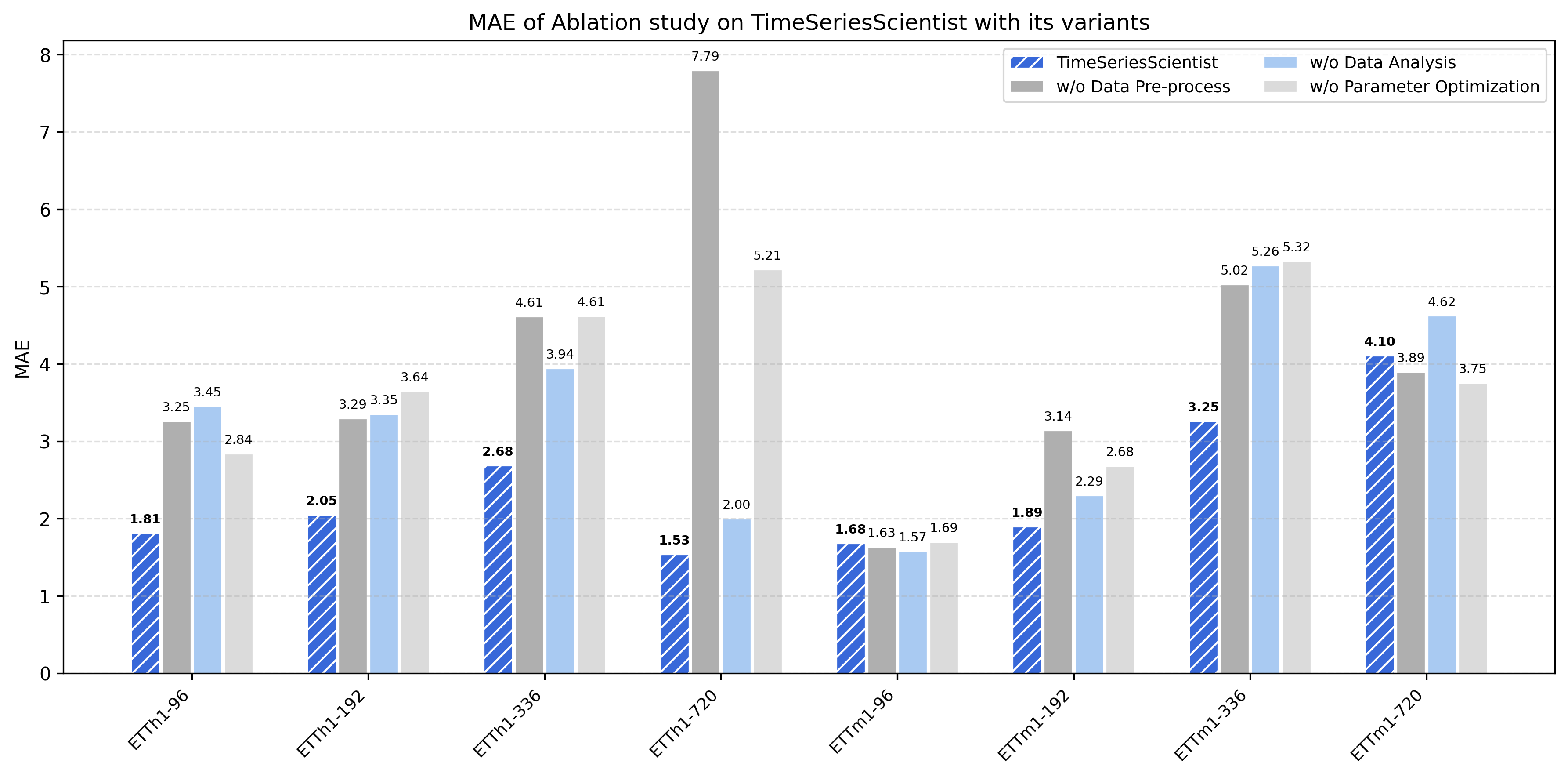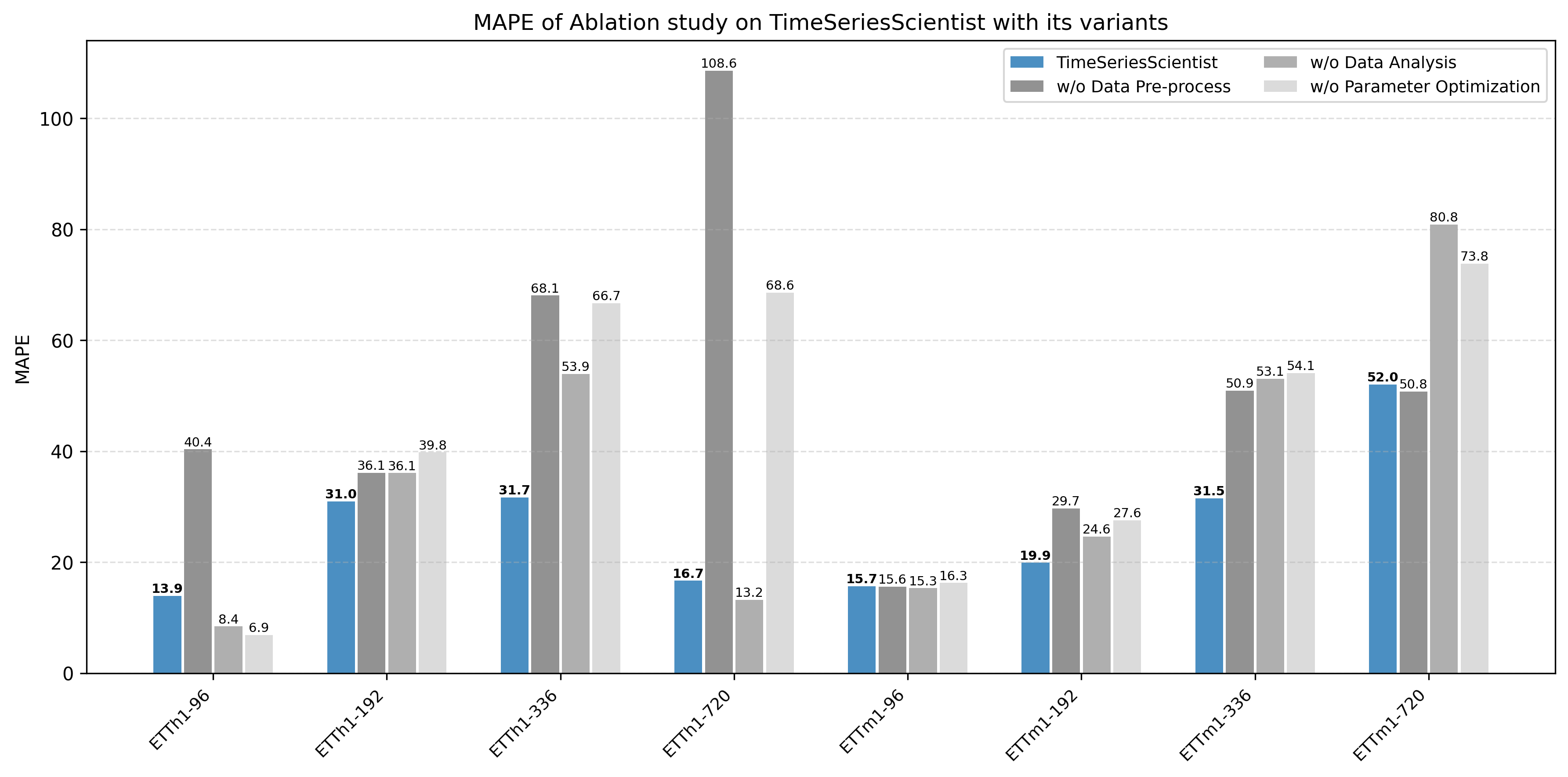
A General-Purpose AI Agent for Time Series Analysis
Haokun Zhao1,2 ★
Xiang Zhang3 ★
Jiaqi Wei4 ★
Yiwei Xu5
Yuting He6
Siqi Sun7
Chenyu You1
1Stony Brook University 2University of California, San Diego 3University of British Columbia
4Zhejiang University 5University of California, Los Angeles
6Case Western Reserve University 7Fudan University ★Equal Contribution
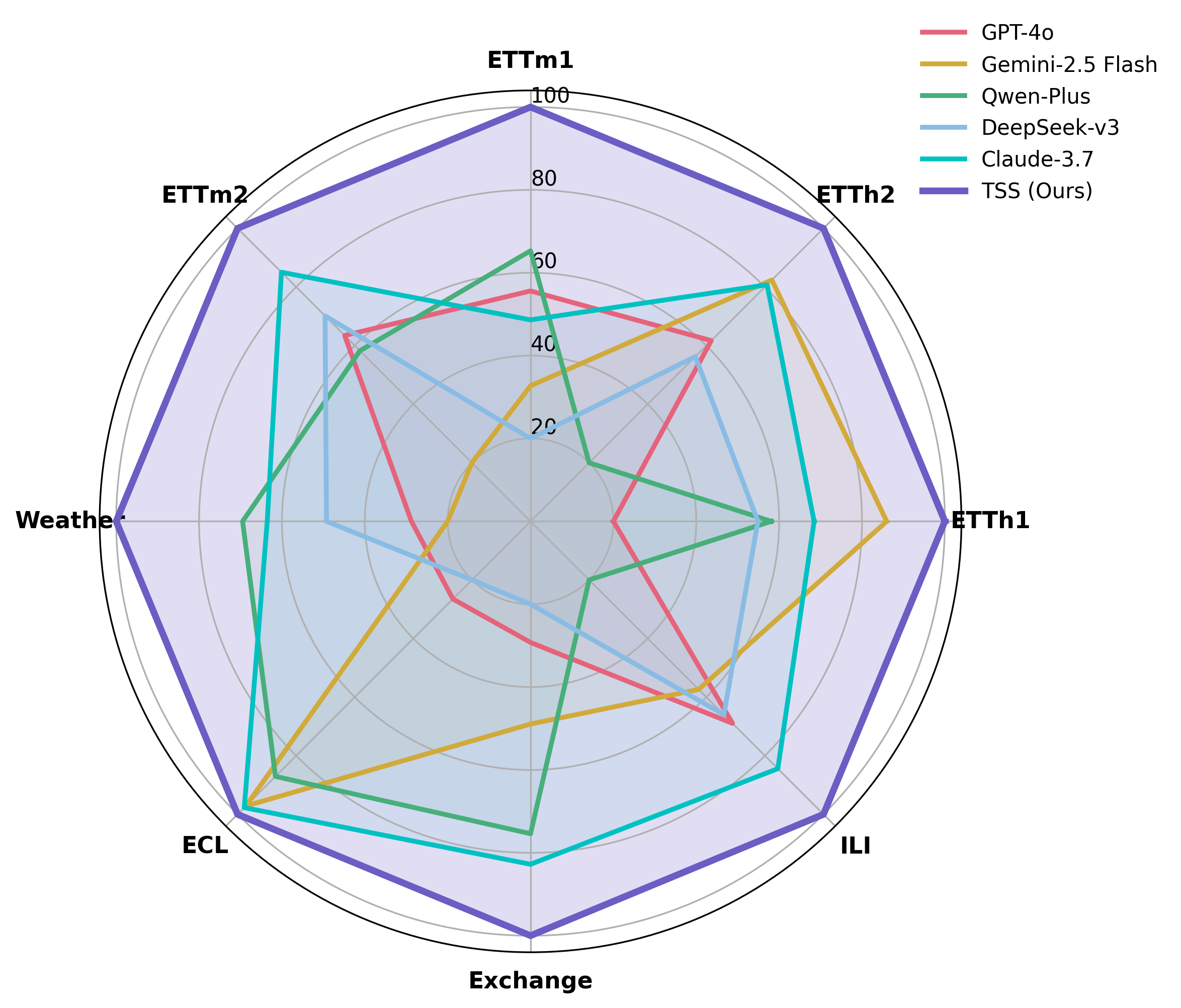
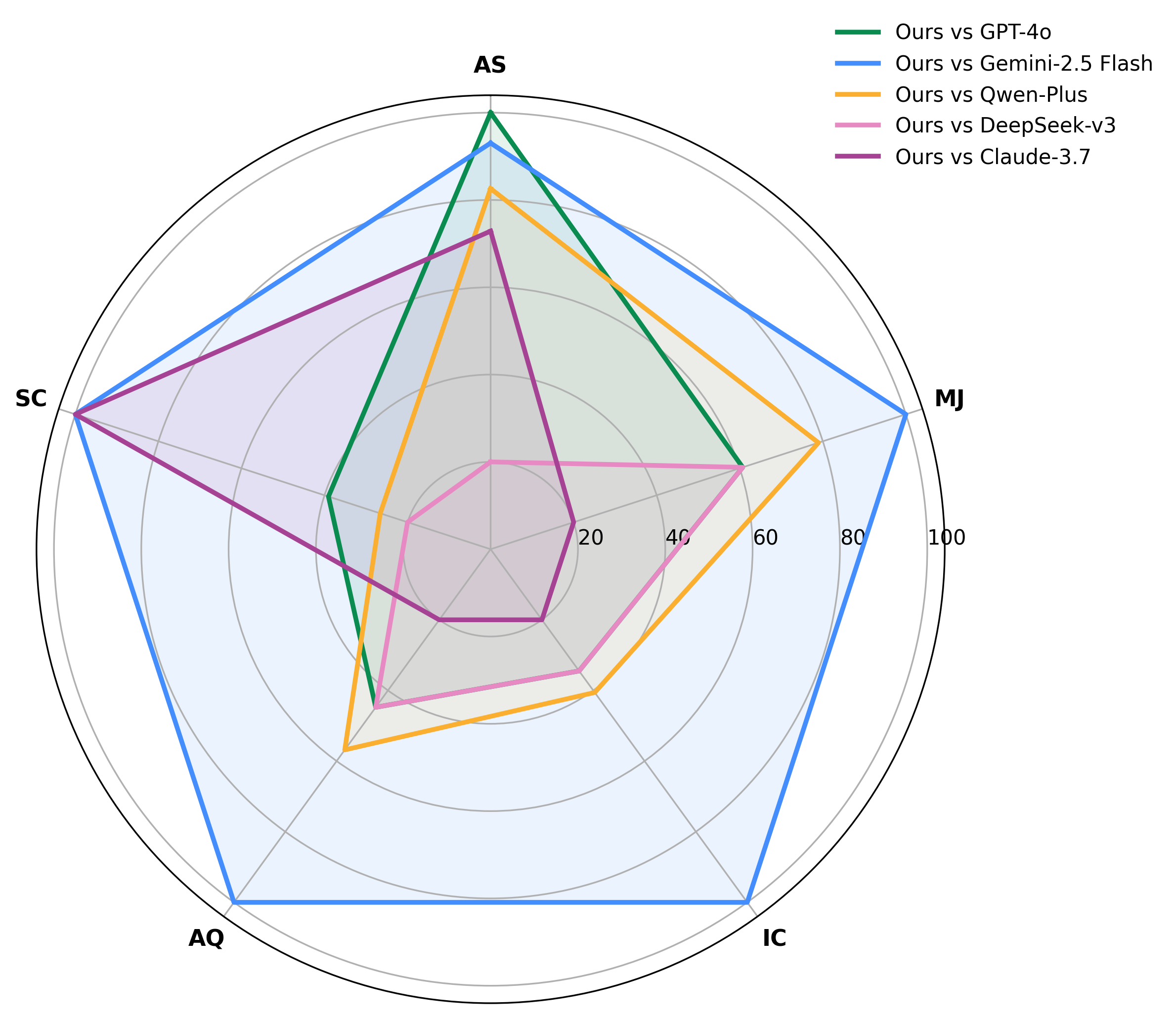
Performance comparison of TSci with five LLM-based baselines. TSci outperforms LLM-based baselines on eight benchmarks spanning five domains (Left). The comprehensive report generated by TSci outperforms LLM-based baselines across five rubrics (Right).



